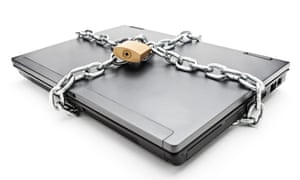Πώς να παραμείνετε οnline αν το διαδίκτυο ή τα μέσα κοινωνικής δικτύωσης μπλοκαριστούν στη χώρα σας
Ο χρηστικός οδηγός με τα πρώτα βήματα και τις εφαρμογές που θα παρακάμψουν τη λογοκρισία και τις παρεμβάσεις. Γιά τους ακτιβιστές των ψηφιακών δικαιωμάτων, αποτελεί σημαντικό ορόσημο του 2016 η έκδοση του ψηφίσματος του Συμβουλίου Ανθρωπίνων Δικαιωμάτων των Ηνωμένων Εθνών για την προώθηση και την προστασία της ελευθερίας των χρηστών στο διαδίκτυο...(www.lifo.gr)
Yet, 51 intentional disruptions of the internet and electronic communications took place in the first 10 months of 2016 in countries across the world. For Africans, 2016 shaped up to be “the year of internet shutdowns,” as at least 11 governments interfered with the internet during elections or protests.
In 2017, the threat of internet blackouts, besides surveillance and monitoring of online activities, still looms large. Deji Olukotun, the senior global advocacy manager with Access Now says that there are significant challenges facing internet freedom. These include, he says, “the increasing sophistication of internet shutdowns to target smaller groups of people and locations” besides the deployment of technologies “that don’t truly provide new users with access to the full, open internet.”
Governments usually direct telecommunication companies to block certain websites or completely shut down the telephone and internet network. The next time that happens, here are a few things you can do to avoid the blackouts.
The Guardian Project also has a number of apps like Orbot that can help you browse the internet anonymously, send messages and encrypt your internet traffic. Tails is an operating system that enables you to start on any computer, allowing you to bypass censorship, and uses cryptographic tools to encrypt files and email messages.
Lantern uses peer-to-peer networks to get people in uncensored areas to share their Internet connection and servers with those without the same unfiltered level of access. Peer networking is also used with FireChat, an off-the-grid messaging app that allowed users to chat using Bluetooth or wireless during blackouts in Iraq, Iran, and Hong Kong.
But beware: governments can sometimes use sophisticated technology to block these same sites or introduce jail terms for using them. A 2016 Amnesty International report showed that the Ethiopian government blocked both Tor and Psiphon during anti-government protests there last year.
Many people use virtual private networks, or VPNs, to get secure access to a remote computer over the internet. For instance, VPNs constituted the top 12 apps downloaded during Uganda’s elections last February. VPNs can, however, differ from region to region, and it is important to know the safety and security of each specific networks before use. Access Now recommends That One Privacy Site as a source that compares different virtual networks.
Amama Mbabazi, a presidential candidate in Uganda’s 2016 elections referred his followers to the Tunnelbear VPN.
Another important thing to have is anti-virus software, so as to detect and remove malicious software from your laptop. “Something as simple and as basic as having an anti-virus is a key thing. People don’t know much about this,” Ephraim Muchemi, who conducts training in digital security with the US-based non-profit International Research and Exchange Board.
Sign up for the Quartz Africa Weekly Brief — the most important and interesting news from across the continent, in your inbox.





